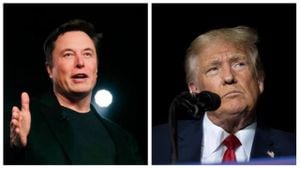A New York judge has sent ripples through the legal waters for former President Donald Trump by indefinitely postponing his sentencing related to the hush money payments scandal. Initially set for November 26, the sentencing has been delayed without setting another date amid rising tensions over Trump’s historical legal predicaments. This delay marks the third postponement since Trump was convicted earlier this year for falsifying business records connected to payments made to adult film star Stormy Daniels.
The presiding judge, Juan Merchan, has granted Trump's legal team until December 2 to file motions seeking to dismiss the case. Trump's attorneys have claimed this case should be terminated entirely due to his election as president, stating, “Just as a sitting president is completely immune from any criminal process, so too is President Trump as President-elect.” This legal argument underlines the unprecedented nature of the situation, as Trump will be both the first U.S. president to confront sentencing post-election and the first former president found guilty of crimes, having been charged with 34 felonies.
The postponement appears to reflect broader concerns about how to balance the judicial process with the demands of executive power. Manhattan District Attorney Alvin Bragg’s office has acknowledged the uniqueness of the issue at hand, even hinting at potential delays for sentencing until Trump is out of office, which could extend well beyond the current administration’s term if Trump is successful.
Trump's conviction stemmed from his involvement with hush money payments made to Daniels to silence allegations of their affair shortly before the 2016 presidential election. The payments are seen not just as a personal scandal, but as having potential electoral ramifications, leading the prosecution to assert violations of New York election laws. During the trial, evidence indicated Trump directly worked to cover these payments, which his legal team has vehemently denied, labeling it another act of political persecution.
Legal experts are closely monitoring this case as it pushes the boundaries of presidential immunity, especially after the U.S. Supreme Court ruled earlier this year concerning the defenses available to officeholders when engaging with judicial processes. The ruling implied certain acts performed by the president are insulated from prosecution if they fall within the scope of official duties, prompting Trump’s team to leverage this to their advantage.
Despite the gravity of the legal trouble, Trump's political standing took another twist on November 5, when he was declared the winning candidate for president, marking him as the first individual to secure the office even after being convicted. This duality of being both politically ascendant and legally beleaguered has ignited fierce debates, evoking questions about accountability and fairness within the political arena.
Commentaries from Trump’s representatives framed the judge's decision to pause proceedings as another victory for the president-elect. Trump communications director Steven Cheung called it “a decisive win,” standing firm on claims of this case as being politically motivated, stating, "All of the sham lawfare attacks against President Trump are now destroyed." This rhetoric continues to resonate with his base, reinforcing the narrative of victimization against perceived political opponents, even as legal challenges loom heavily on his horizon.
Bragg's team, recognizing the unprecedented circumstances following Trump's recent election victory, has not opposed the delay but remains resolute against dismissing the case. They have emphasized the necessity to respect the jury's verdict and the structural integrity of the judicial process, arguing Trump should not be above the law simply because of his electoral position.
Broadly considered, the new timeline raises pressing questions about how Trump's presidency might influence judicial proceedings. The upcoming December deadlines set by Judge Merchan will be pivotal, as they will allow both sides to solidify their arguments on whether this historic case holds any merit beyond the political surfaces.
Meanwhile, the legal quagmire surrounding Trump is not confined to the hush money payments. He faces additional charges stemming from efforts to overturn the results of the 2020 election and dealings involving classified documents. The overlapping nature of these legal issues compounds the challenge for the former president and the electorate alike, as his campaign promises of returning to the White House intertwine with unresolved allegations from his past.
Facing multiple indictments within both federal and state courts, Trump maintains his innocence, proclaiming the prosecution stories arising around him as politically motivated. His legal team has echoed sentiments of presidency-induced immunity, attempting to carve out legal protections it claims are necessitated by his victorious electoral mandate and the remarkable challenges of prosecuting a sitting president or president-elect.
This odyssey of legal battles is set against the backdrop of Trump's broader ambition to reclaim his former office. It not only marks immediate controversies but also places significant speculation on the overall direction of U.S. governance, the legal system's responses to its most prominent figures, and the resilience of federal integrity.
The outcome of Trump's hush money sentencing will resonate far beyond courtroom walls as the nation watches how these unprecedented legal themes materialize within its political fabric. From Trumps' own assertions to the districts' challenges, every layer contributes to what many perceive as the new normal of American politics, testing the limitations of legality, governorship, and public accountability.
What remains clear is the reality facing the American electorate as it tries to balance the conflicting images of legality and leadership amid the unpredictability of the legal tides surrounding Donald Trump. And as this complex narrative continues to develop, the court's decisions and the outcomes of the various motions will reveal the next chapter, ensuring this saga remains front and center of national discourse.



